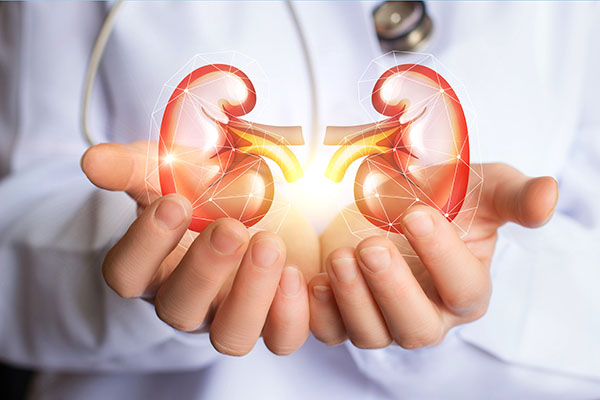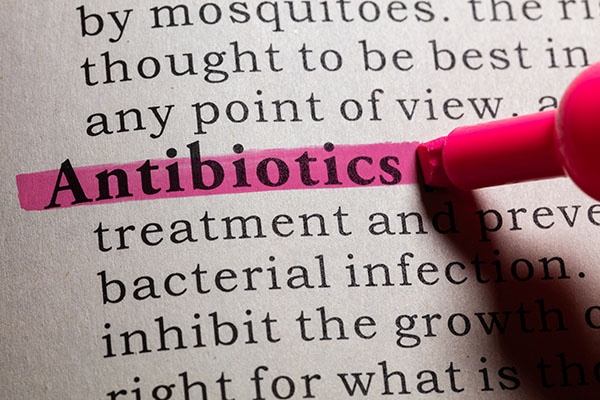Antibiotics in infancy linked to elevated Type-1 Diabetes risk
04/24/2025 / By Lance D Johnson

A new study finds that infants, in their first ten days of life, are vulnerable to antibiotics, so much so, that they can develop Type 1 Diabetes due to bacterial changes in their gut caused by the antibiotics.
- Early antibiotic exposure increases type 1 diabetes risk by disrupting gut microbes critical to pancreas development
- 10-day “window of vulnerability” in newborn mice reveals antibiotic-induced damage to insulin-producing cells
- Maternal use of macrolides and UTI drugs heightens children’s diabetes risk by 91%, new studies reveal
- Three gut microbes—E. coli, Enterococcus, and Candida dubliniensis—act as immune allies in critical developmental stage
The unseen toll: How antibiotics genetically rewrite a child’s future health
In a world primed to fight germs with pharmaceutical might, a groundbreaking study reveals antibiotics may be turning the tide of a different war—one waged silently inside infants. When a 3-week-old mouse receives penicillin, its pancreas loses the genetic armor against immune revolt. By adulthood, this disruption spirals into type 1 diabetes. Researchers now confirm humans share this hidden vulnerability: antibiotics administered in those fragile first six weeks of life don’t just kill germs—they rewrite bodily blueprints.
“Antibiotics aren’t just ‘walking through the garden’ cleaning up weeds,” explains microbiology pioneer Martin Blaser, MD, referencing his seminal work on microbial extinction. “They’re carpet-bombing ecosystems. And when that happens in infancy, it’s like erasing a child’s immunological education before it even begins.” Published data from the University of Colorado Boulder shows bacteria and fungi work in precise concert during a critical 10-day developmental window—a timeframe scientists now analogize to “software coding” pancreatic health.
The paradox of modern medicine hits hard: physicians heal immediate infections only to lock patients into lifelong metabolic crises. Three recently identified microbial heroes—Candida dubliniensis, Enterococcus gallinarum, and certain E. coli strains—exhibit powers once deemed impossible. Alexander Chavkin, a lead researcher on fungal immunology, describes Candida’s role as “the first line of pancreatic scaffolding.” These microbes don’t just live in the gut; they communicate with immune cells to steer beta cell growth. Disrupt this dialogue, and insulin production falters.
The critical 10-Day window in pancreatic development
A University of Utah Health team unraveled the biological clock dictating diabetes destiny. Mice administered antibiotics before weaning lost 30-40% of their pancreatic beta cells—the tiny insulin factories orchestrating blood sugar balance. Crucially, these results only occurred when antibiotics hit the so-called “window of vulnerability”—calibrated at 6-16 days of life in rodents, roughly equivalent to 1-3 months post-birth in humans.
The mechanism reads like microbial detective work: C. dubliniensis colonies triggered a surge of macrophages, immune cells long overlooked for their role in tissue repair. As macrophages swarmed the developing pancreas—prompted by fungal cell wall components—they left behind beta cell clusters 50% denser than control mice. “It’s guerrilla warfare turned symbiotic,” jokes Dr. Hill, the study’s lead author. “Yeast incites inflammation just the right amount to spur growth, then back off.”
Human trials confirmed timing’s centrality. When researchers transplanted microbiomes from 8-month-old children into germ-free mice, brown rice strains of fungi sparked beta cell growth. Samples from toddlers older or younger stayed inert. “Your microbial window slams shut by age 1,” warns pediatric endocrinologist Dr. Rachel Green. “After that, even perfect gut flora can’t rewind the programming.”
The Finnish study drove this point home: mothers taking trimethoprim (a common UTI drug) during pregnancy faced a 91% diabetes leap in their offspring. This effect disproportionately hits boys, with exposed males 40% more likely to develop autoimmune diabetes signatures than similarly exposed girls. “It’s as if male pancreases are more ‘fragile’ by evolution,” muses epidemiologist Jaana Saarinen, noting sex-specific immune responses.
Beyond diabetes: antibiotics’ shocking long-term consequences
The disease doesn’t stop at diabetes—it’s part of a domino chain of immune amnesia. Children given early antibiotics face tripled asthma risks and double obesity likelihood, per longitudinal tracking of 50,000 kids. San Diego researcher Corinne Cross links antibiotic-wracked microbiomes to overactive immune systems: “Infants deprived of critical microbes never master inflammation control—like a fire department without training.”
A recent Harvard study found 20% of inter-generational gut bacteria loss correlates with ADHD diagnoses. Pregnant mothers who overuse antibiotics pass on depleted microbiome heirlooms—affecting brain-building short-chain fatty acids. “It’s not just diabetes on the line,” notes neurosurgeon-turned-microbiome advocate Dr. Steven Gundry. “Our antibiotics are hollowing out the microbiome library where future generations should learn to thrive.”
The crisis reaches intimate bodily systems. Trimethoprim’s interference with folate metabolism during pregnancy isn’t an isolated defect—it’s part of a larger dance between drugs and DNA methylation. “Antibiotics create epigenetic shadows,” posits epigeneticist Mieczys?aw K?os. “They don’t mutate genes but silence microbial signals our genes learned to listen for.”
Rebuilding immune foundations: A parent’s playbook
While some gut shifts are irreversible, strategic choices mitigate harm. Jennifer, a lactation consultant in Oregon, attests to the power of first milk: “My client’s baby thrived after antibiotics—but only because she co-fed probiotic-rich breast milk and avoided sterilizing everything.” Here’s actionable wisdom:
- Prescription prudence: When offered antibiotics, ask “wait” questions: Is this due to a viral infection? Can we ????????? Even a 24-hour delay saves microbial sanctuaries.
- Microbial microfinance: Post-antibiotic, replenish with strains like B. infantis (clustered in refrigerated probiotics). Some pioneering clinics use frozen fecal transplants for C-section babies—restocking their “inside microbiome” from medication-free elders.
- Germ harmony, not war: Let children play in grassy dirt. A 2023 Stanford study found kids exposed to diverse soil microbes had 50% fewer allergies. “Dirt isn’t your enemy—it’s the alphabet of immune literacy,” proclaims leading immunologist Graham Rook.
The takeaway? Modern medicine faces an ethical reckoning. “We’ve turned antibiotics into vitamins—they’re staple instead of emergency,” laments CDC epidemiologist Shelley Hearne. Yet solutions exist in nature’s playbook—such as breastfeeding’s immune cocktails or fermented foods that carry thousands of beneficial bacterial genes. The war on microbes forged a world of pacified pathogens, but in retrospect, it’s evident: some germs aren’t just “stuff living in us”—they’re essential architects of our cellular survival.
Sources include:
Submit a correction >>
Tagged Under:
Antibiotics, Censored Science, children's health, chronic disease, epigenetics, fermented foods, gut microbiome, immune system, maternal health, medical violence, microbiota, neurological health, pancreas function, pediatric care, prevent diabetes, probiotics, Type1Diabetes
This article may contain statements that reflect the opinion of the author
RECENT NEWS & ARTICLES
PrescriptionDrugs.News is a fact-based public education website published by Prescription Drugs News Features, LLC.
All content copyright © 2018 by Prescription Drugs News Features, LLC.
Contact Us with Tips or Corrections
All trademarks, registered trademarks and servicemarks mentioned on this site are the property of their respective owners.



















